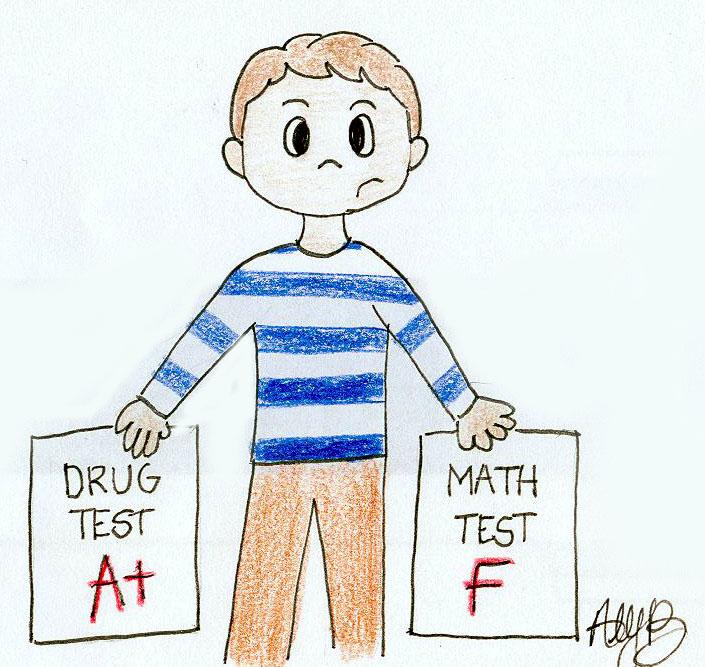Drug testing: not a solution
March 2, 2016
Drug testing is often thought of as an effective way to decrease drug use in both students and employees, but statistics by the Journal of School Health prove that often drug testing is ineffective. Results of this test show that drug use does not decrease and student’s perceptions of drugs are not altered. While drug testing may seem helpful, in reality they are a violation of our privacy.
Drug testing may not be a thought on everyone’s mind, but it’s extremely common in society today. According to the Center for Disease Control & Prevention, 18 percent of public schools, which accounts for approximately one in five schools, carry out mandatory drug testing.
In the workplace, The Washington Post reported that in 1996 81 percent of employers drug tested. While the number has decreased, according to the latest poll done by the American Management Association showed it to be 62 percent, it is still too high.
Decreasing drug use may seem like a result of drug testing, it is a common misconception. A surprising study reported by The New York Times showed that drug testing has no impact on students’ use. The Journal of School Health concluded that 37 percent of 12th graders in a school with drug testing have smoked marijuana, compared with a similar 36 percent of 12th graders in a school without testing. When focusing on the use of illicit drugs, 21 percent of students used them with drug testing policies, while a lower 19 percent of students used them in a school without policies. The study concluded that the strongest influence of students’ drug use is not drug testing, but instead students’ feelings on drugs and peer influences. Drug use is often the same or increased after implementing tests because most students’ perceptions of drugs don’t change with a simple test. Drug testing is thought of as the right intervention for student drug use, but according to this study students biggest influence is their values, attitudes, and perceptions, which proves that drug testing is not the right solution.
While I don’t believe that sporadic drug testing should be allowed, drug testing after a suspicion or knowledge that illegal substances are being used should be permitted. Solon High School is a drug free school and drug testing is only conducted after the first offense of “possessing, purchasing, using, applying or being under the influence [of narcotics, alcoholic beverages, stimulant drugs or anabolic steroids]” according to the SHS Handbook.
While SHS is only drug testing after a first offense, other schools in Ohio, like North Olmsted, subject students to random testing. The requirements for testing include participating in athletics, extra and co-curricular activities and students who park on school property. If a student tests positive on the first test he is not subject to punishment, but instead meets with guidance and his parents and participates in drug intervention programs. Since this is the first year that this policy will be implemented, results are not in yet, but staff at North Olmsted hope that these tests will prevent drug use.
Not only is drug testing proven to have no effect, but it’s also a violation of our privacy. In the Fourth Amendment we are protected from unreasonable searches and seizures, which should be a strong enough reason to end random testing. Additionally, The American Academy of Pediatrics (AAP) recently came out strongly against sporadic drug testing. AAP claims that instead of resulting in a decreased abuse of substances, it produces a weakened student-school relationship and reveals students’ confidential medical records. Upon drug testing, the administration not only sees students’ use of illegal drugs, but also their legally prescribed medications. While we can’t confirm that after the administration learns about a previously unknown student medical record that he or she will handle situations with that student differently, the medications are not necessary to divulge.
The abuse of drugs is not something that should be overlooked, but chance drug testing is not the solution. We have not yet discovered a truly effective means of significantly reducing drug use; working towards a solution is crucial, but in the meantime, violating privacy and trust through random drug testing is not the answer.
